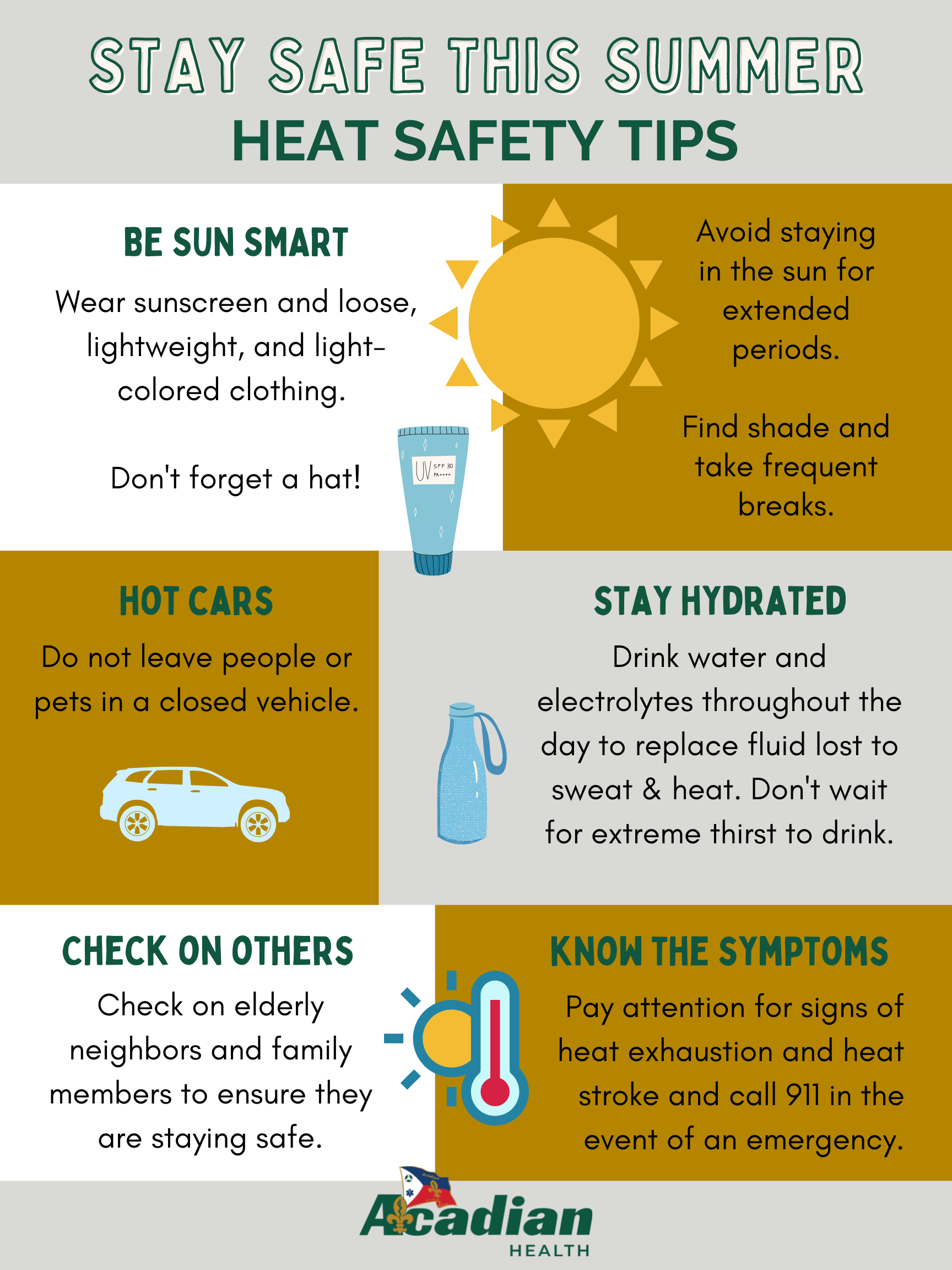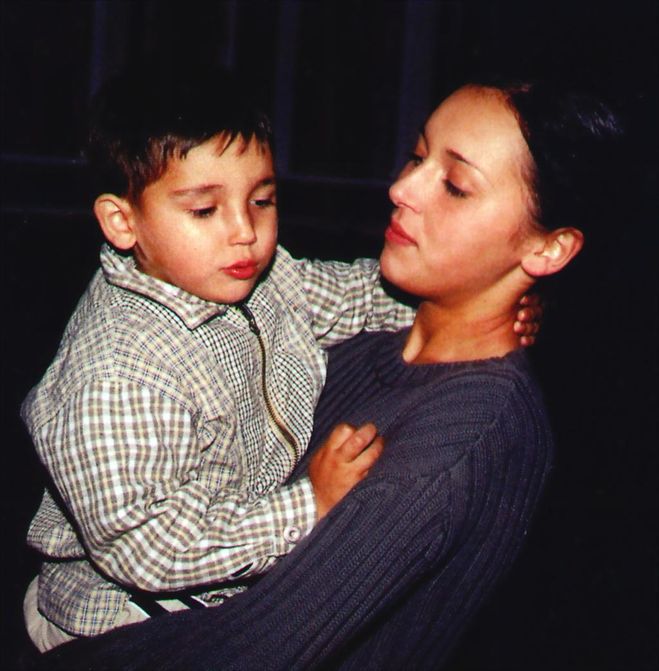Health Advisory Issued: Stay Safe During Extreme Heat Wave

Table of Contents
Recognizing Heat-Related Illnesses
Extreme heat can lead to various health problems. Understanding the signs and symptoms is the first step in protecting yourself and others.
Heat Exhaustion
Heat exhaustion is a milder form of heat-related illness, but it can still be dangerous if left untreated. Symptoms include:
- Heavy sweating
- Weakness
- Dizziness
- Headache
- Nausea
- Muscle cramps
What to do: If someone experiences heat exhaustion, move them to a cool place, have them lie down and elevate their legs, give them cool water to drink, and loosen any tight clothing. Seek medical attention if symptoms worsen or don't improve after a couple of hours.
Heat Stroke
Heat stroke is a life-threatening emergency. It occurs when the body's temperature regulation system fails. Symptoms include:
- High body temperature (above 103°F or 39.4°C)
- Altered mental state (confusion, disorientation, slurred speech)
- Seizures
- Loss of consciousness
Immediate Action: Call emergency services (911 or your local equivalent) immediately if you suspect heat stroke. While waiting for help, move the person to a cool place, remove excess clothing, and try to cool them down using methods such as cool cloths or a fan. Do not give them anything to drink.
Other Heat-Related Conditions
Other heat-related conditions include heat cramps (painful muscle spasms) and sunburns. Preventing these often involves staying hydrated, wearing protective clothing, and limiting sun exposure during peak hours.
Protecting Yourself from the Extreme Heat Wave
Taking proactive steps is key to preventing heat-related illnesses during this extreme heat wave.
Stay Hydrated
Hydration is critical. Drink plenty of fluids, even before you feel thirsty. Water is the best choice, but you can also consume electrolyte drinks in moderation. Avoid excessive caffeine and alcohol, as these can dehydrate you.
- Drink water regularly throughout the day.
- Carry a water bottle with you.
- Monitor your urine color; dark yellow indicates dehydration.
Dress Appropriately
Wear light-colored, loose-fitting clothing to reflect sunlight and allow for better air circulation. Protect your skin from the sun's harmful rays by wearing a wide-brimmed hat and sunglasses.
- Choose clothing made from breathable fabrics like cotton or linen.
- Opt for light colors like white or beige.
- Use sunscreen with a high SPF (at least 30).
Limit Outdoor Activities
Try to schedule outdoor activities for the cooler parts of the day, such as early morning or late evening. Take frequent breaks in shaded or air-conditioned areas to prevent overheating.
- Avoid strenuous outdoor activities during the hottest part of the day (typically between 10 a.m. and 4 p.m.).
- Take breaks every hour in a cool environment.
- Pay attention to your body. If you feel overheated, stop your activity immediately.
Seek Cool Environments
Utilize air conditioning whenever possible. If you don't have air conditioning at home, visit public cooling centers or other air-conditioned spaces like libraries or shopping malls.
- Find your nearest cooling center using online resources or by contacting local authorities.
- Use fans strategically to increase air circulation.
- Take cool showers or baths.
Protecting Vulnerable Populations
Certain groups are more vulnerable to the effects of an extreme heat wave. Special care should be taken to protect them.
Infants and Children
Infants and children are particularly susceptible to heat-related illnesses due to their immature temperature regulation systems.
- Keep children well-hydrated.
- Dress them in lightweight, breathable clothing.
- Limit their time outdoors during the hottest part of the day.
- Never leave children unattended in a parked car.
Older Adults
Older adults may have a reduced ability to regulate their body temperature and may be taking medications that increase their heat sensitivity.
- Check on elderly neighbors and family members regularly.
- Ensure they are drinking enough fluids.
- Encourage them to use air conditioning.
Individuals with Chronic Illnesses
Individuals with chronic health conditions, such as heart disease, lung disease, or kidney disease, are at increased risk of heat-related complications.
- Follow any specific recommendations from their healthcare provider.
- Take extra precautions to stay cool and hydrated.
Conclusion
This extreme heat wave presents serious health risks. By following these guidelines—staying hydrated, dressing appropriately, limiting outdoor activities, seeking cool environments, and paying special attention to vulnerable populations—you can significantly reduce your risk of heat-related illnesses. Stay safe during this extreme heat wave by following these guidelines and sharing this important information with friends and family. Your health and safety are paramount.

Featured Posts
-
 Den Epistrefei I Skarlet Gioxanson Os Black Widow I Anakoinosi Poy Prokalese Thyella
May 13, 2025
Den Epistrefei I Skarlet Gioxanson Os Black Widow I Anakoinosi Poy Prokalese Thyella
May 13, 2025 -
 Big Issue Kids Competition Winner Announced
May 13, 2025
Big Issue Kids Competition Winner Announced
May 13, 2025 -
 Exploring The Inferno A Look At Earth Series 1 Episode 1
May 13, 2025
Exploring The Inferno A Look At Earth Series 1 Episode 1
May 13, 2025 -
 Next Generation Xr Platforms The Impact Of Ai Integration
May 13, 2025
Next Generation Xr Platforms The Impact Of Ai Integration
May 13, 2025 -
 Pryachetsya Za Mat Pochemu Syn Pevitsy Kadyshevoy Izbegaet Alimentov
May 13, 2025
Pryachetsya Za Mat Pochemu Syn Pevitsy Kadyshevoy Izbegaet Alimentov
May 13, 2025
